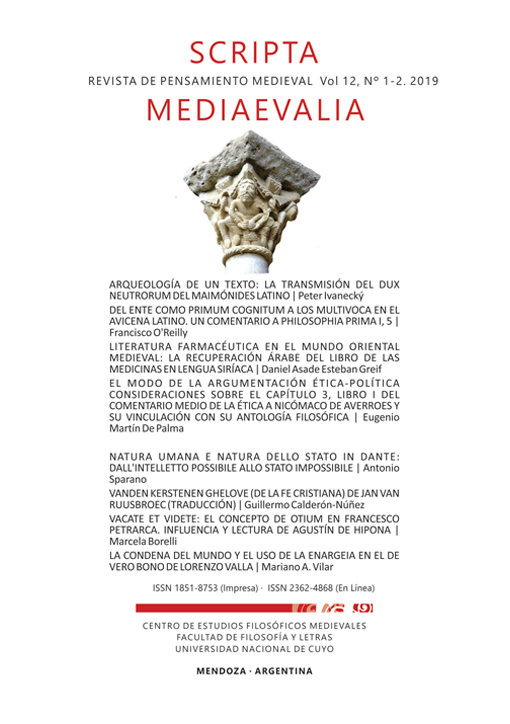Human Nature and Nature of the State in Dante: from the Possibile Intelect to the State Impossibile
Keywords:
Dante, Monarchia, nature, politicsAbstract
This paper deals with the utopian character of Dante's Monarchia. Specifically, the subject to be dealt concerns the arguments with which Dante would justify the authority of the Empire or Universal Monarch like only apex of the political hierarchy from which all power would derive. The author is confronted with an interpretative line that considers Dante's political thought like a substantially realistic system, especially considering its recovery from a historical reality like that of imperial Rome. Against this position the author shows that the realistic aspirations of Dante's thought fail when Dante pretends to demonstrate philosophically the necessity of Monarchia or Empire. With this aim the author makes a short synthesis of the Florentine's political thought in his greatest political work, the Monarchia, to show that in this treatise there is a radical impossibility of reconciling the historical evidence, resulting from the examination of the imperial history of Rome, and the philosophical arguments, resulting from the examination of the intellectual nature of man



















